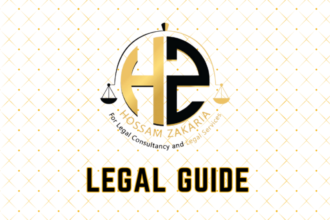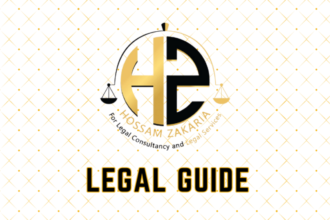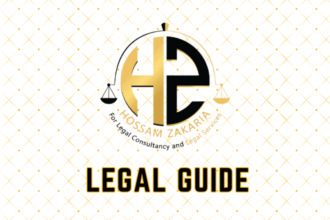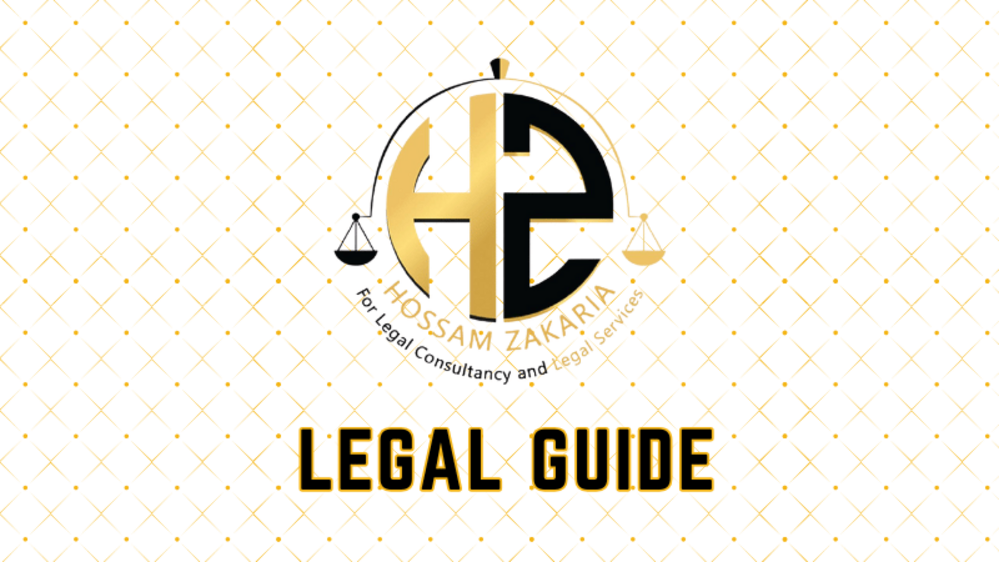Introduction: Saudi Aviation Law and the GCC’s March Toward Legal Excellence
The transformation of Saudi Arabia’s aviation regulatory framework represents a watershed moment not only for the Kingdom itself, but also for the wider Gulf Cooperation Council (GCC) region, including the UAE. Recent reforms, marked by the issuance and ongoing modernization of the Civil Aviation Law and aligned ministerial resolutions, have catapulted Saudi aviation oversight into alignment with global benchmarks, most notably those set by the International Civil Aviation Organization (ICAO). For UAE-based businesses, legal professionals, and aviation stakeholders, understanding the substance and strategic implications of these legal developments is essential for long-term compliance, operational safety, and commercial advantage.
This article delivers an in-depth consultancy analysis of how Saudi Arabia’s refreshed aviation regulatory regime is not only safeguarding local interests but advancing global standards and ICAO alignment. The discussion is acutely relevant to UAE clients: aviation sector entities, legal practitioners, business leaders, and HR managers must remain vigilant to cross-border legal trends that may signal parallel reforms at home. With the UAE’s own legal landscape undergoing rapid evolution—exemplified by ongoing Federal Decree updates and ministerial guidelines—keeping abreast of Saudi’s approach can provide a blueprint for compliance, risk mitigation, and strategic business growth.
Table of Contents
- Overview of the Saudi Aviation Law and Regulation
- Alignment with ICAO Standards: Key Provisions and Motivations
- Breakdown of Core Legal Provisions
- Comparative Table: Old vs. New Law
- Applying Saudi Aviation Law: Consultancy Guidance for UAE Entities
- Risk Analysis and Compliance Strategies
- Case Studies and Real-World Examples
- Conclusion and Future Perspectives
Overview of the Saudi Aviation Law and Regulation
The Legal Foundation and Key Updates
Saudi Arabia’s aviation sector is governed by an integrated framework based on the Saudi Civil Aviation Law (Royal Decree No. M/44, promulgated 2022), supported by regulations issued by the General Authority of Civil Aviation (GACA). This law introduces comprehensive reforms that modernize the aviation ecosystem, shifting from prescriptive, locally centered rules to a harmonized international framework that complies with ICAO’s Annexes and recommended practices.
Key features of the law include:
- Implementation of risk-based safety management systems (SMS) for all aviation stakeholders
- Stricter, more transparent licensing requirements for operators, personnel, and facilities
- Explicit definition of state and operator responsibilities, both domestically and internationally
- Enhanced accountability for incidents and accidents, in accordance with ICAO protocols
- Frameworks for oversight of Unmanned Aircraft Systems (UAS) and new technologies
Official References and Regional Relevance
The full text and supplementary regulations are available from the General Authority of Civil Aviation (GACA). Regional observers, including the UAE Ministry of Justice and Ministry of Energy and Infrastructure, are closely monitoring these Saudi updates as benchmarks for potential harmonization or policy influence within the GCC. These developments may presage updates to UAE Federal Decree-Law No. 26 of 1981 (Civil Aviation Law) and related resolutions.
Alignment with ICAO Standards: Key Provisions and Motivations
ICAO and the Global Standardization Imperative
The International Civil Aviation Organization (ICAO)—the United Nations agency responsible for setting global civil aviation standards—mandates technical, operational, and safety benchmarks codified in its Annexes. For decades, disparate local rules in Gulf states created barriers to seamless international operations, regulatory mutual recognition, and aviation safety. Saudi Arabia’s legal alignment with ICAO Annexes demonstrates a decisive commitment to international best practices, addressing long-standing shortcomings such as:
- Inconsistent licensing protocols
- Gaps in safety reporting and incident investigation
- Vague liability allocations
Key ICAO Principles Incorporated in the Saudi Law
Through the revised Civil Aviation Law, Saudi Arabia has embedded core ICAO obligations into national law, including:
- Safety Management Systems (SMS): Mandates risk-based, organization-wide safety controls (per ICAO Annex 19)
- Personnel Licensing: Requires full compliance with international requirements on medical fitness, competence, and training (ICAO Annex 1)
- Incident Reporting: Adopts ICAO Annex 13 requirements on notification, investigation, and transparency
- Environmental Protections: Conforms with ICAO Annex 16 on aircraft emissions and noise control
Breakdown of Core Legal Provisions
1. Safety Obligations
The law obligates every holder of an air operator certificate, maintenance provider, or ground services license to establish and document a Safety Management System (SMS), tailored to its operational complexity and in line with GACA’s Guidance based on ICAO Annex 19. This includes the implementation of reporting mechanisms for hazards and incidents, appointment of accountable managers, and periodic safety audits.
Consultancy Insight: UAE entities seeking to partner with, supply to, or operate in Saudi jurisdiction must be prepared to demonstrate equivalent SMS controls—this is a rising threshold also signaled in the UAE’s own aviation regulatory drafts.
2. Licensing and Operator Authorization
The law prescribes detailed requirements for the issuance, renewal, and revocation of various aviation licenses. Operators must comply with rigorous vetting, submit to recurrent checks, and disclose foreign regulatory actions. GACA’s regulations echo the Federal Authority for Identity, Citizenship, Customs & Port Security’s recent clarification of cross-border licensing recognition within the GCC.
3. Airworthiness and Technical Oversight
Aircraft and component certifications are now subject to enhanced inspections and documentation, aligning to ICAO’s standards on technical logs, maintenance records, and modification tracking.
4. Liability and Insurance
Liability for carriage of passengers, goods, and third parties is clarified, closely tracking the Montreal Convention and ICAO recommended practices. Mandatory insurance minimums are set in accordance with market norms and global treaties.
5. Unmanned Aircraft Systems (UAS)
The Law’s specific chapter on unmanned operations is a regional first, requiring operators to obtain prior authorization, adhere to privacy and security requirements, and comply with both national and ICAO guidelines.
Comparative Table: Old vs. New Saudi Aviation Law
| Area | Prior Law (Pre-2022) | Current Law (Post-2022) |
|---|---|---|
| Safety Management | Not explicitly required for all operators or providers | Mandatory SMS per ICAO Annex 19 for all certificate/license holders |
| Incident Reporting | Limited; few obligations for proactive reporting or transparent investigations | Comprehensive; mirrors ICAO Annex 13 protocols, requires reporting, data retention |
| Personnel Licensing | Variable standards, with national variations and limited international recognition | Strict compliance with ICAO Annex 1; increased vetting and mutual recognition rules |
| UAS Regulation | Minimal references; treated on ad hoc basis | Dedicated chapter; clear registration, security, and privacy rules |
| Liability/Insurance | Ambiguous thresholds, no systematic compliance with Montreal Convention | Explicit compliance; insurance aligned to international norms |
Applying Saudi Aviation Law: Consultancy Guidance for UAE Entities
Who Needs to Pay Attention?
- Airlines and Charter Operators— operating routes into, overflying, or conducting wet-lease operations with Saudi-registered aircraft.
- Maintenance, Repair, and Overhaul (MRO) Providers— UAE-based firms contracted to work on Saudi-owned equipment.
- Technical Staff, HR, and Executives— involved in secondments, cross-border staffing, or joint ventures.
- UAS/Drone Operators— particularly those providing industrial, inspection, or logistics services to Saudi clients.
Practical Considerations for Compliance and Business Strategy
- Conduct a compliance gap analysis with the new GACA regulations, referencing ICAO Annexes as a cross-check.
- Update internal standards and training curricula for pilots, engineers, and ground staff to reflect Saudi’s new safety and reporting norms.
- Review and, if necessary, upgrade insurance and risk management provisions to meet revised liability thresholds.
- For UAS operators, ensure all hardware, procedures, and data handling meet the new privacy/security directives.
- Document compliance efforts with traceable audit trails—this is increasingly critical for both Saudi and UAE regulatory oversight.
Visual Suggestion: Compliance Checklist
Insert a table or checklist visual summarizing the key elements required for compliance with Saudi aviation law (see table format below):
| Requirement | Current Status | Action Needed |
|---|---|---|
| SMS Implementation | Partial / Full / Not started | Establish or update according to GACA & ICAO standards |
| License Vetting | GCC compliant | Seek validation from GACA if required |
| Incident Reporting | Ad hoc / Structured | Set up formal system per ICAO Annex 13 |
| Insurance Limits | Needs review | Consult broker for adjustments |
| UAS Compliance | Pending / Complete | Register drones, document procedures |
Risk Analysis and Compliance Strategies
Legal and Operational Risks of Non-Compliance
- Regulatory Sanctions: Fines, license suspensions or revocations, blacklisting by GACA.
- Commercial Exposure: Insurance claim denials, penalties for breach of contract with Saudi or international partners.
- Reputational Harm: Publicized investigations or incident reports harming brand credibility.
- Barriers to Cross-Border Expansion: Outdated safety systems or licensing blocking access to profitable collaborations or tenders.
Recommended Compliance Strategies for UAE Entities
- Develop a Saudi Aviation Law Compliance Policy—integrate into broader GCC regulatory programs
- Establish a designated compliance officer or liaison for all Saudi-facing operations
- Leverage authorized GACA consultants or UAE legal advisers for licensing, permits, and ongoing reviews
- Utilize internal audit and legal reviews referencing both Federal Decree Law No. 26 of 1981 (UAE Civil Aviation law) and Saudi rules for full alignment
- Consider cyber and privacy legal reviews for UAS/data compliance
Visual Suggestion: Penalty Comparison Chart
| Violation | Penalty (Old Law) | Penalty (Current Law) |
|---|---|---|
| Operating without valid SMS | Warning/fine | Major fines, suspension, public reporting |
| Unlicensed UAS operations | Rarely enforced, nominal penalties | Immediate confiscation, fines, possible criminal liability |
| Failure to report incidents | Minor administrative penalty | Substantial fines, mandatory audits |
Case Studies and Real-World Examples
Case Study 1: UAE Charter Company Expanding to Riyadh
A UAE-based charter air service sought market entry into Saudi Arabia post-2022. Despite operating under full UAE GCAA licensing, the operator’s internal SMS and incident reporting protocols were not aligned with new Saudi/ICAO standards. Upon GACA audit, deficiencies were identified—this required rapid adaptation, including specialist training and technology upgrades. The company’s prompt compliance actions not only avoided regulatory sanctions but also positioned them as a preferred partner for multinational logistics clients.
Case Study 2: UAS Operator on an Industrial Project
A UAE drone service was contracted to carry out aerial surveys for a Saudi infrastructure project. Lacking prior UAS authorization from GACA, equipment and data were temporarily impounded during customs review. Lessons learned included the importance of pre-registration, full compliance checks, and privacy documentation, now built into the company’s internal SOPs and client briefings for future cross-border projects.
Case Study 3: HR Issues in Cross-Border Certification
An Emirati HR firm seconding technical aviation staff to a Saudi-ground handling company encountered issues with delayed recognition of UAE-issued licenses. After engaging legal consultants, mutual recognition was secured via formal request to GACA, referencing relevant ICAO and GCC agreements—streamlining future staffing transactions and documenting procedures for rapid resolution of similar issues.
Conclusion and Future Perspectives
Saudi Arabia’s overhaul of its aviation regulatory regime sets a new bar for the region. By embedding ICAO’s globally accepted principles into national legislation, the Kingdom demonstrates best practice leadership—offering a template for neighboring states such as the UAE, which is itself an aviation nexus. For UAE-based stakeholders, the message is clear: understanding and adapting to Saudi’s standards is not just prudent, but essential for legal, operational, and reputational security.
Looking forward, GCC-wide regulatory harmonization is likely as regulators track each other’s progress and as cross-border operations deepen. Businesses that proactively upgrade their policies, procedures, and certifications to reflect these stringent benchmarks will strengthen their market access, enhance safety outcomes, and reduce risk. Professional legal guidance should be sought routinely to monitor regulatory updates, interface with official authorities, and manage compliance programs—now a business imperative at the intersection of local and global aviation trends.
Best Practices for Clients:
- Schedule periodic compliance reviews with specialist counsel
- Invest in staff training on latest GACA, ICAO, and UAE Decree-Law requirements
- Maintain documentation and audit trails for all aviation-related operations
- Monitor official channels such as the UAE Federal Legal Gazette, Ministry of Justice, and GACA for legislative updates
In an era of accelerating legal change, robust, informed, and proactive compliance is the key to enduring commercial advantage—across the skies and beyond.



